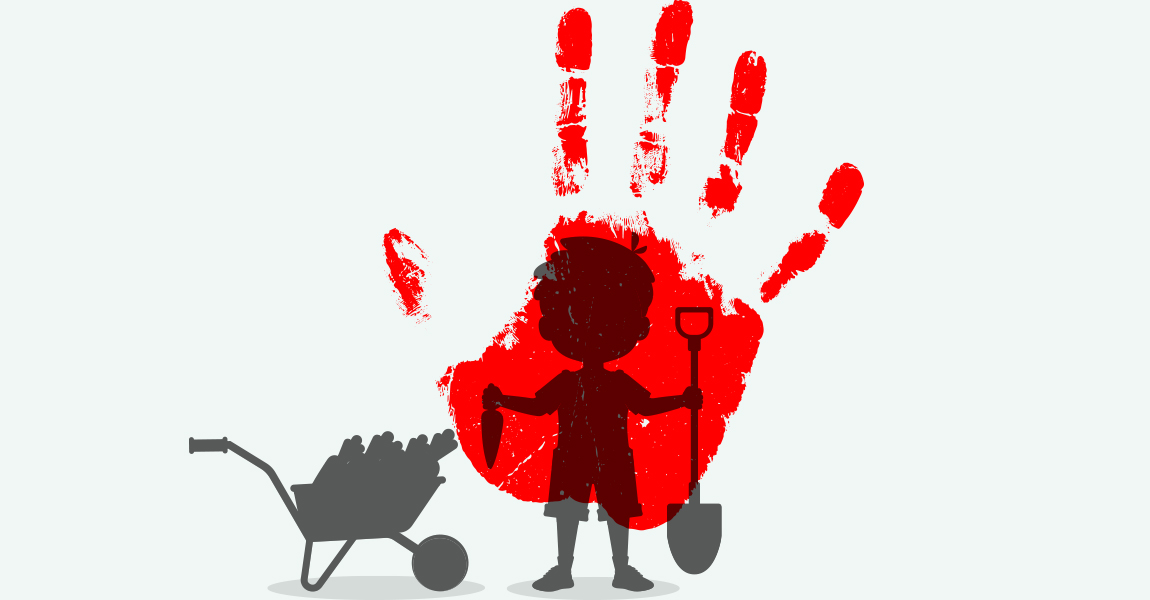On the World Day against Child Labor, we review the obligations that companies in Spain must comply with to eradicate child labor in the world. These measures translate into reporting duties on their own personnel and those of the companies in their value chain in terms of human rights, including child labor. We also flag the forthcoming regulations that expressly establishes human rights due diligence obligations and prohibits the entry into the European Union of products manufactured with forced child labor.
The World Day Against Child Labor, proclaimed by the International Labor Organization in 2002, is celebrated every June 12. This year, under the theme, “Let’s act on our commitments: End child labor!”, celebrates the 25th anniversary of the adoption of Convention No. 182 on the Worst Forms of Child Labor (human trafficking, forced recruitment, prostitution, slavery, etc.) of the International Labor Organization, adopted by the General Conference of the International Labor Organization on June 17, 1999.
According to United Nations data, 160 million children in the world are working today and almost half of them perform dangerous jobs, which put their health and lives at risk. This shows that we are far from the goal contained in the Sustainable Development Goals, which is to eliminate child labor in all its forms by 2025.
How does this affect Spanish companies?
Although for some Spanish companies the problem of child labor may seem distant, it is a matter that they must address in order to comply with Directive (EU) 2022/2464 of the European Parliament and of the Council of 14 December 2022 amending Regulation (EU) No. 537/2014, Directive 2004/109/EC, Directive 2006/43/EC and Directive 2013/34/EU as regards sustainability reporting by companies (known by its acronym CRSD, and pending transposition in Spain), which foresees the obligation of companies included in its scope to provide certain information on sustainability.
As implementation of the directive, the European Commission approved the Delegated Regulation (EU) 2023/2772 of July 31, 2023, supplementing Directive 2013/34/EU of the European Parliament and of the Council as regards sustainability reporting standards, which contains a first set of reporting standards (ESRS) specifying the information that a company must disclose about its material impacts, risks and opportunities in relation to environmental, social and governance issues.
In this first set of standards, child labor is expressly defined and contemplated as one of the issues to be considered in terms of reporting. Specifically, the delegated regulation defines child labor as work that “deprives children of their childhood, their potential and their dignity, and is harmful to their physical and mental development. Specifically, it refers to work that:
- is mentally, physically, socially or morally hazardous and harmful to children; and/or
- interferes with their schooling by depriving them of the possibility of attending school; obliging them to leave school prematurely; or requiring them to attempt to combine schooling with excessively long and heavy work”.
On this matter, the companies included in the scope of application of the delegated regulation must disclose information in accordance with the standards related to their own personnel and the standards related to the workforce in their value chain, to assess the extent to which the company complies with international and European instruments and conventions on human rights.
In addition, companies shall report on measures taken in relation to child labor, including any supplier policies and codes of conduct they may have implemented.
More European regulation in sight
Furthermore, it is expected that a regulation that will prohibit the entry of products manufactured with forced labor (including forced child labor) into the EU market will be approved soon. The publication of the recently approved Corporate Sustainability Due Diligence Directive (CSDDD) is also expected, which will oblige companies included in its scope of application to identify, prevent, mitigate, eliminate and remedy their adverse effects on human rights and the environment, including those related to child labor.
In short, companies in Spain must address child labor to comply with the new European Union standards that aim to eradicate it, in line with the commitment to promote human rights worldwide.






